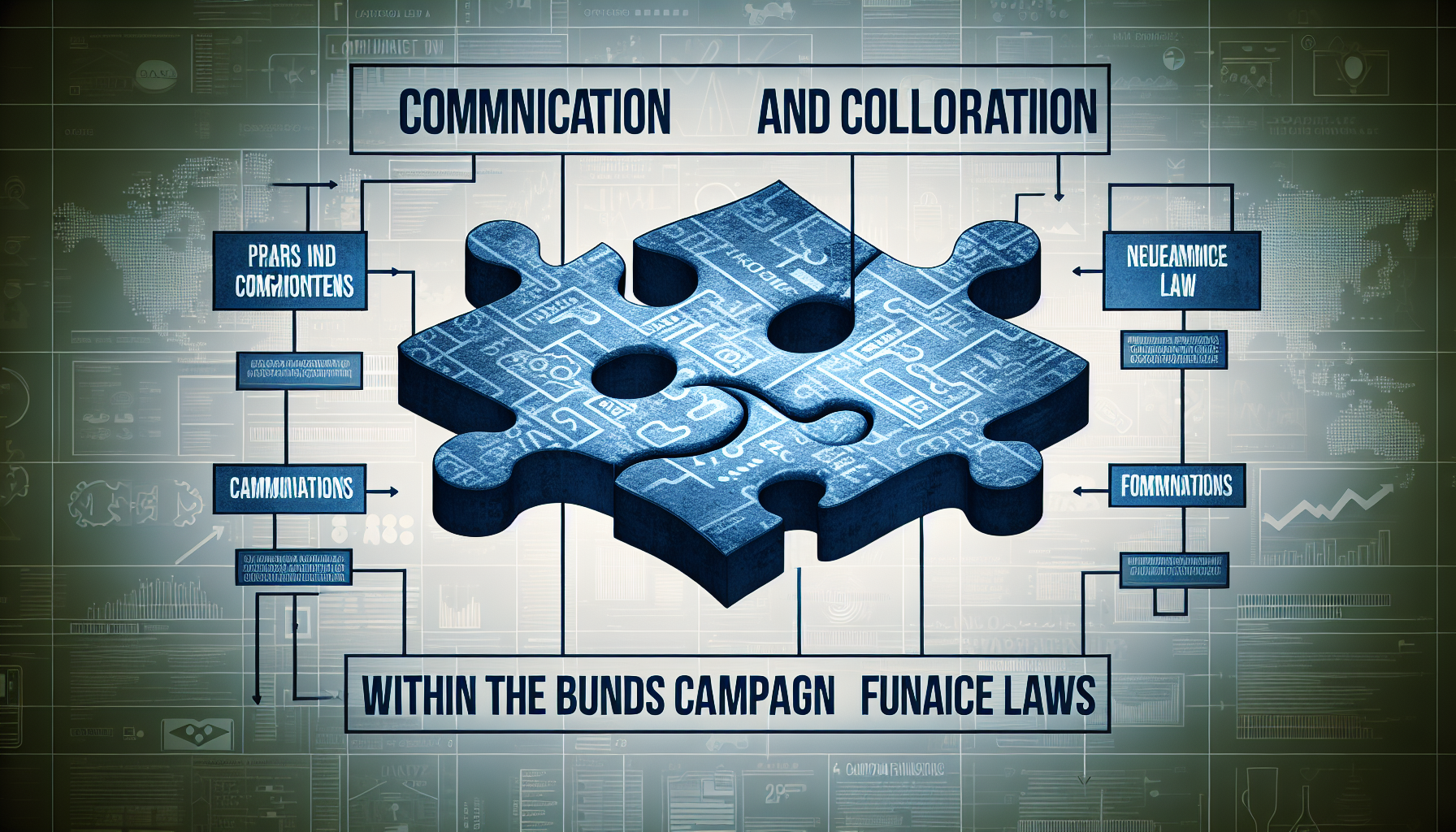How Do Campaign Finance Laws Address Coordination Between Candidates And Parties?
Have you ever wondered how campaign finance laws regulate the coordination between candidates and political parties during an election? Understanding these laws is crucial for maintaining transparency and integrity in the electoral process. Let’s delve into the complexities of how campaign finance laws address coordination between candidates and parties.
What is Coordination in Campaign Finance?
Campaign coordination, as defined by the Federal Election Commission (FEC), refers to any cooperation or agreement among individuals or groups to engage in campaign activities. This can include sharing resources, strategy, or information to influence the outcome of an election.
Why is Coordination Regulated?
Coordination between candidates and parties is regulated because it has the potential to undermine the principles of fair elections. Without proper regulations, candidates and parties could coordinate their efforts in ways that give them an unfair advantage over their opponents. Campaign finance laws aim to ensure a level playing field and prevent corruption in the electoral process.

Types of Coordination
There are several types of coordination that campaign finance laws seek to regulate:
Coordinated Expenditures
Coordinated expenditures occur when a third party, such as a political party or PAC, spends funds in coordination with a candidate or their campaign. These expenditures are subject to contribution limits and disclosure requirements to prevent circumvention of campaign finance laws.
Coordinated Communications
Coordinated communications refer to any joint efforts between a candidate or party committee and an outside group to create or distribute campaign materials. This includes advertising, mailings, and other forms of communication intended to influence the election.
Coordinated Fundraising
Coordinated fundraising involves the solicitation of funds by a candidate or party in conjunction with outside organizations. This coordination is subject to contribution limits and disclosure requirements to prevent the funneling of large sums of money into a campaign through indirect channels.

The Role of Campaign Finance Laws
Campaign finance laws play a critical role in regulating coordination between candidates and parties to ensure transparency and accountability in the electoral process. These laws establish guidelines for permissible coordination activities and set limits on contributions to prevent undue influence on candidates.
Campaign Contribution Limits
One of the key components of campaign finance laws is the establishment of contribution limits for individuals, political committees, and parties. These limits are designed to prevent wealthy donors from exerting disproportionate influence on elections by capping the amount of money they can contribute to a candidate or party.
Disclosure Requirements
Campaign finance laws also impose disclosure requirements on candidates, parties, and outside groups to publicly report their campaign activities and expenditures. This transparency allows voters to know who is funding political campaigns and helps prevent corruption or undue influence in the electoral process.
Enforcement Mechanisms
To ensure compliance with campaign finance laws, enforcement mechanisms are put in place to investigate and penalize violations. The FEC, state election commissions, and other regulatory bodies monitor campaign activities and take action against individuals or organizations that violate the law.

Coordination and Super PACs
Super PACs, or independent expenditure-only committees, have become a significant presence in modern political campaigns. These organizations are allowed to raise and spend unlimited amounts of money to advocate for or against political candidates, as long as they do not coordinate their activities with the candidates themselves.
Avoiding Coordination with Candidates
To maintain their independence and avoid coordination, super PACs must operate separately from a candidate’s campaign. This means they cannot consult with the candidate or their campaign staff on strategy, messaging, or spending decisions.
Influence of Super PACs
While super PACs are not allowed to coordinate with candidates, they can still have a significant impact on elections by running ads, engaging in voter outreach, and shaping public opinion. Their ability to raise large sums of money from wealthy donors has raised concerns about the influence of money in politics.

Recent Developments in Coordination Laws
In recent years, there have been notable developments in campaign finance laws addressing coordination between candidates and parties. These changes reflect evolving practices in political campaigns and seek to uphold the integrity of the electoral process.
Supreme Court Decisions
Supreme Court decisions, such as Citizens United v. FEC and McCutcheon v. FEC, have shaped the landscape of campaign finance laws by expanding the rights of corporations, unions, and individuals to contribute to political campaigns. These decisions have led to increased spending by outside groups and raised questions about the influence of money in politics.
Legislative Reforms
In response to concerns about coordination and the influence of money in politics, some states and municipalities have enacted legislative reforms to strengthen campaign finance laws. These reforms aim to increase transparency, limit the role of super PACs, and reduce the impact of wealthy donors on elections.
Calls for Further Regulation
Despite existing campaign finance laws, there are ongoing calls for further regulation to address coordination and other loopholes in the system. Advocates for campaign finance reform argue that more stringent laws are needed to prevent corruption, ensure fair elections, and restore public trust in the political process.

Conclusion
Campaign finance laws play a crucial role in regulating coordination between candidates and parties to promote transparency, fairness, and accountability in the electoral process. By establishing contribution limits, disclosure requirements, and enforcement mechanisms, these laws aim to prevent undue influence on elections and uphold the integrity of our democratic system.
Next time you hear about a political campaign, remember the intricate rules and regulations that govern coordination between candidates and parties to ensure a level playing field for all participants. Understanding these laws is essential for upholding the principles of democracy and protecting the integrity of our electoral process.

Comments are closed